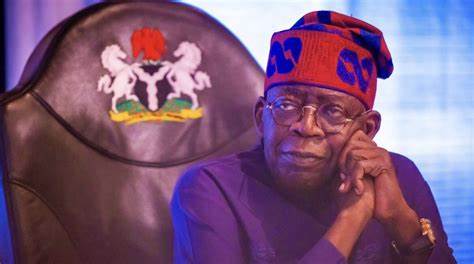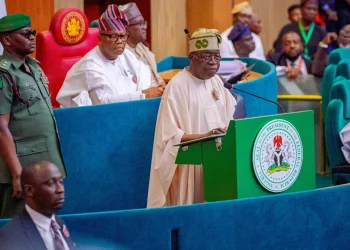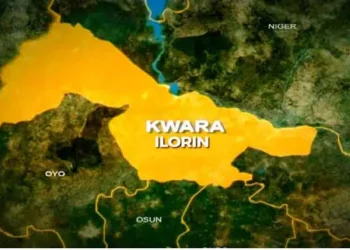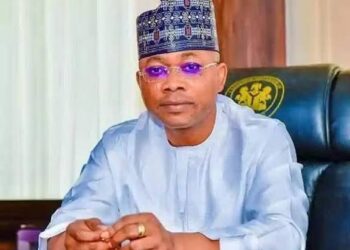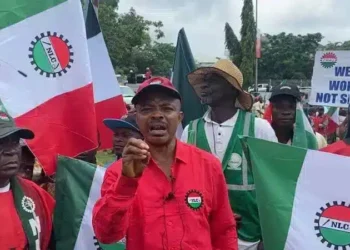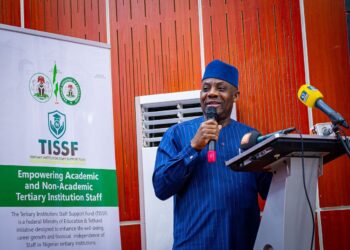President Bola Tinubu has declared that his administration has made “undeniable progress” despite initial economic challenges, as he marked the second anniversary of his presidency on Thursday, May 29, 2025.
In a comprehensive statement issued from Aso Rock, Tinubu acknowledged the difficulties faced by Nigerians while defending his controversial economic reforms, particularly the removal of fuel subsidies and the unification of foreign exchange windows, which he described as necessary to prevent the country from sliding into fiscal crisis.
The President credited his administration’s policies with stabilizing the economy and positioning Nigeria for growth, citing improved revenue generation, reduced fiscal deficits, and increased foreign reserves as evidence of progress under his Renewed Hope Agenda.
“While implementing the reforms necessary to strengthen our economy and deliver shared prosperity, we have remained honest by acknowledging some of the difficulties experienced by our compatriots and families,” Tinubu stated, while maintaining that the alternative would have been “runaway inflation, external debt default, crippling fuel shortages, a plunging Naira, and an economy in a free-fall.”
According to the President’s statement, Nigeria’s fiscal deficit narrowed significantly from 5.4% of GDP in 2023 to 3.0% in 2024, while the country’s debt service-to-revenue ratio dropped from nearly 100% in 2022 to under 40% by 2024. He also highlighted that net external reserves grew by almost 500% from $4 billion in 2023 to over $23 billion by the end of 2024.
The administration reported real GDP growth of 4.6% in the fourth quarter of 2024, with full-year growth of 3.4%, which Tinubu described as “one of the strongest in a decade.” The oil and gas sector showed recovery with rig counts up by over 400% in 2025 compared to 2021, attracting over $8 billion in new investments.
A significant focus of the anniversary statement was the administration’s tax reform agenda, with Tinubu announcing that the tax-to-GDP ratio rose from 10% to over 13.5% by the end of 2024. The reforms include eliminating multiple taxation burdens on small businesses and introducing 0% VAT on essential goods such as food, education, and healthcare, while fully exempting rent, public transportation, and renewable energy from VAT.
In the health sector, the President highlighted the revitalization of over 1,000 Primary Health Centres nationwide, with an additional 5,500 PHCs being upgraded. The administration has established six new cancer treatment centres, with three already operational, and expanded health insurance coverage from 16 million to 20 million people within two years.
On security challenges, Tinubu acknowledged ongoing threats while claiming success in restoring order to previously bandit-controlled areas in the northwest region. He praised security personnel for their sacrifices and promised continued vigilance against security threats, telling citizens that “every Nigerian deserves to live without fear.”
The statement outlined extensive infrastructure projects across all geopolitical zones, including major road construction and rehabilitation projects such as the Abuja-Kaduna-Zaria-Kano Dual Carriageway, the Lagos-Calabar Coastal Highway, and the Second Niger Bridge Access Road, among hundreds of ongoing projects.
In agriculture, the administration reported launching aggressive initiatives to boost local food production, investing in mechanized farming through procurement of thousands of tractors, farming tools, and fertilizers. The President claimed that rice prices and other staples have begun declining as inflation starts to ease.
Tinubu also highlighted youth empowerment initiatives, particularly through the National Agency for Science and Engineering Infrastructure (NASENI), which he said has embraced digital transformation and launched programs like Innovate Naija and the Renewable Energy and Innovation Park in Gora.
Looking ahead, the President announced preparations for the upcoming Motherland Festival, designed to showcase Nigeria’s heritage and creative industries to the world. He also referenced new policies for the Nigerian diaspora, including diaspora bonds and non-resident Bank Verification Numbers to facilitate investment and engagement.
The anniversary statement comes amid ongoing public debate about the impact of the administration’s economic reforms on ordinary Nigerians, with critics arguing that the removal of fuel subsidies and currency devaluation have significantly increased the cost of living for many citizens.
“I acknowledge the sacrifices many Nigerians have made and continue to make as we reposition our country, not just for today but for generations yet unborn,” Tinubu stated, expressing confidence that “the worst is behind us” and promising that “the real impact of our governance objectives is beginning to take hold.”
As the administration enters its third year, the President’s optimistic assessment of progress will likely face scrutiny from opposition parties and civil society groups who continue to criticize the pace and impact of economic reforms on Nigeria’s most vulnerable populations.

